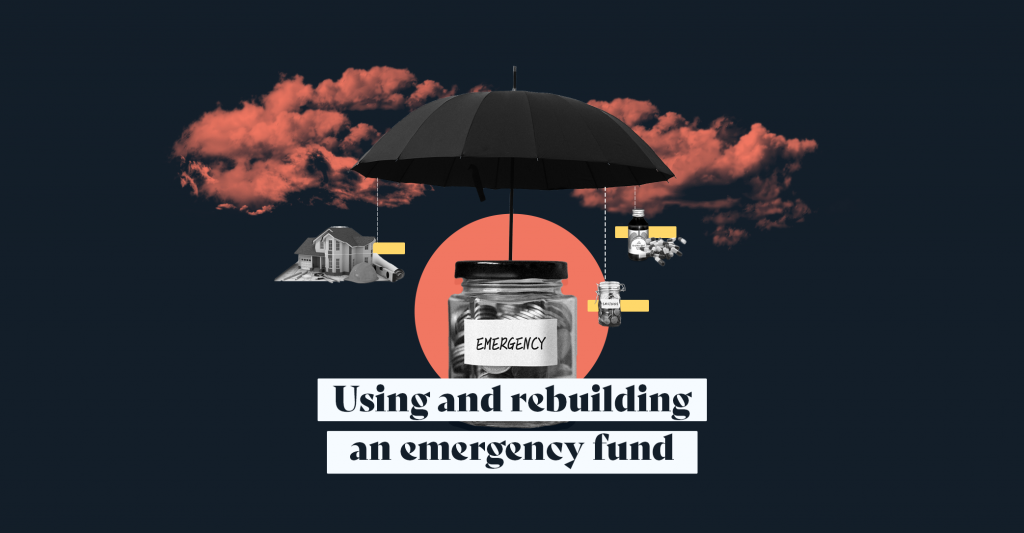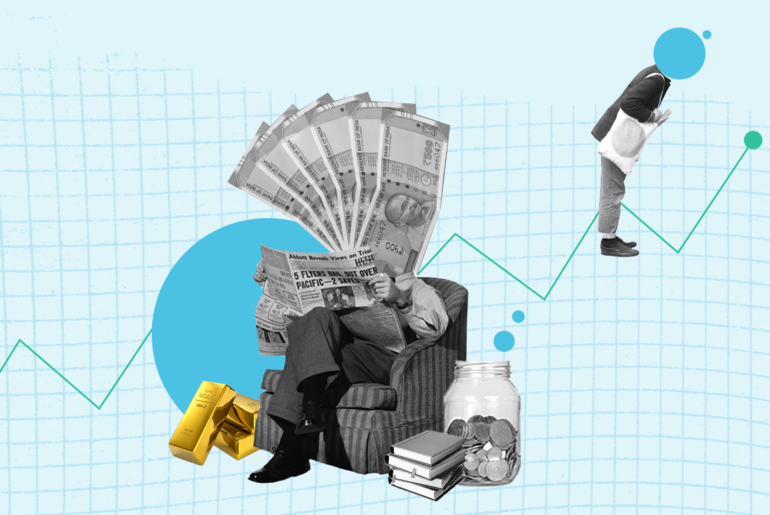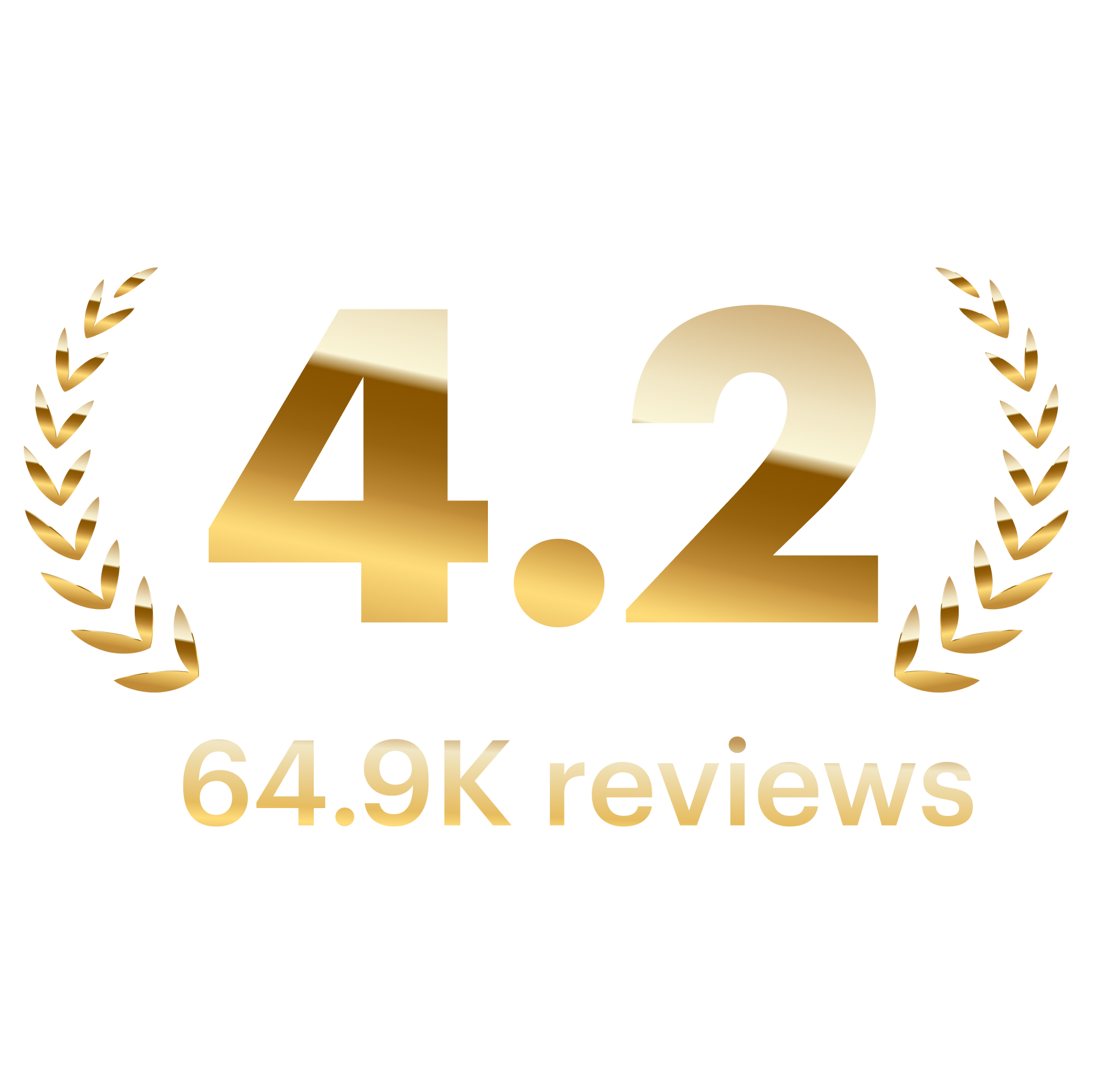Last Updated on Jun 1, 2021 by Aradhana Gotur
Life is uncertain. At one moment, you see it is full of roses, and there is nothing that can be detrimental to it. The very next moment, you realize that something terrible happened that can take a toll on the way you lead your daily life. You are unsure what life will throw at you, but the least you can do is prepare for the emergency. Most emergencies often bring along financial contingencies too. It is the reason you need a contingency fund.
A contingency fund is separate from your usual savings account. You do not use it in normal circumstances. It covers up to 6 mth of your household’s day-to-day expenditures. Having a backup plan enables you to lead a reasonable life without having to fall back on debts or making sizable compromises. If you, like most, have depleted your contingency fund this pandemic, here is an article that talks about when to and when not to use the fund and the ways to rebuild it conveniently.
This article covers:
- When not to use a contingency fund?
- When to use an emergency fund?
- How to rebuild your contingency fund?
Table of Contents
When not to use a contingency fund?
There is not a single person who will say that the money in your contingency account is not yours. But given the type of reasons you convince yourself with while setting it up, it is imperative to use it judiciously. Here are the instances when you should not use it:
- For meeting your personal expenses that you are liable to incur regularly, such as income tax, shopping, insurance, birthday gifts, and others. These can wait for a month or more. You need not use your emergency savings to cater to them
- For sufficing with your other financial goals. It is imperative to understand that you cannot use contingency funds to meet your other financial goals such as retirement, startup costs, and others
- For meeting needs that are mere wants. Such expenses include vacations, gadget upgrades, and more. Make it a rule to use your regular wages or side earnings to meet your leisure spending
A lot of questions should precede the decision to use your contingency fund. It is imperative to understand that even if you are clear that you are spending money on an emergency, what if a bigger one lands on your shores tomorrow? The right way to deal with this is to make these funds your last resort – if there is the slightest chance of delaying the expense or utilize any other source to meet it, go for it without a second thought.
When to use an emergency fund?
Now that you know when to not use your contingency funds, you might feel reluctant to touch it even when it’s utterly necessary. So here are the probable reasons when you can resort to utilizing it:
- For meeting your emergency home repairs. It may not seem like an emergency, but if your dwelling place requires immediate attention, you cannot deny it
- For meeting your vehicle’s costs after it met with an accident. These are sudden, unplanned occurrences that can force you to use up a lot of money
- For meeting your day-to-day expenses after a temporary salary cut or loss of job. The pandemic has been harsh, and the need to use up your preserved funds is understandable
- For managing minor medical expenses. It would be best if you get yourself a health insurance policy for meeting major ones
- For any unexpected, unplanned travel. With the ongoing pandemic, and even otherwise, sudden international travel can be a costly affair
These are a few examples. Every human being treats emergencies differently, and what you term contingency may not be so for others. So you need to exercise due diligence and decide if it is viable for you to lay hands on the funds you have kept aside. But if you look back and realize that you are frequently resorting to using your contingency funds, it is time to re-evaluate what you deem as an emergency and the alternatives you have. It would help you keep it safe and last longer.
How to rebuild your contingency fund?
Once you deplete your emergency fund, ensure to rebuild it ASAP. Here are a few tips that can prove to be a handful:
Recalibrate your financial goals
The first step towards rebuilding your contingency fund is analyzing your budget and making suitable amendments to it including postponing your vacations, opting for a lower-priced TV, and more. The next step is to use the extra cash to fuel your emergency funds. Once you have enough influx there, you can switch back to your usual ways.
Keep track of your cash flow
When you are looking to save every single rupee, it is the details that matter. Begin by keeping a tab on your cash inflow and outflow. It will help you understand the amount that you can spend and allocate a figure for your savings. Once you do that, the next step is to figure out redundant expenses or those that you can curtail. It would allow you to save some extra cash every month and gradually build your emergency fund.
Look for ways to generate extra cash
You can save more when you have more. So you must look for upping your income. If it means that you have to undertake a part-time job, do that. If it means working overtime, do it gleefully. With freelancing gigs gaining massive popularity in the country, it should not be difficult for you to find opportunities to earn some extra cash. Allocate the entire gain towards replenishing your contingency fund.
Sell irrelevant stuff
It is unlikely that you do not own anything you can sell without bringing your house down. If you analyze closely, you will find things with no relevance today or those that can be bought tomorrow again, such as an extra pair of headphones, a leather sofa, and more. Thankfully, you can use the internet today to sell this stuff in no time. Remember that you should give it some time if there is a shortage of customers willing to pay the price you desire. Your contingency fund deserves any sale proceeds from selling such stuff.
Use windfalls to your benefit
We tend to splurge the extra cash we receive from selling a particular item or as a bonus on something that is not our immediate need. If it were to be a normal circumstance, no one would bat an eyelid. But the current situation is different, and so should be your behaviour. Instead of using your bonus to get a new TV, contribute it towards your emergency fund. It would bode well for your safety endeavour.
Using up your contingency fund during a crisis is no big deal, but delaying the replenishment process is undoubtedly one. Instead of waiting for a miracle, it is time for you to take things in your hand and reshuffle specific behaviour patterns to ensure you have a shed for the rainy day.




